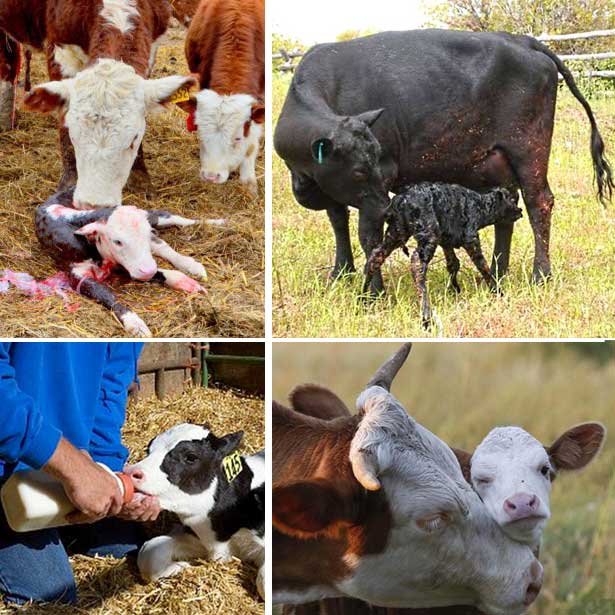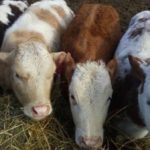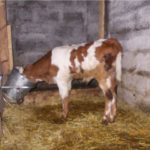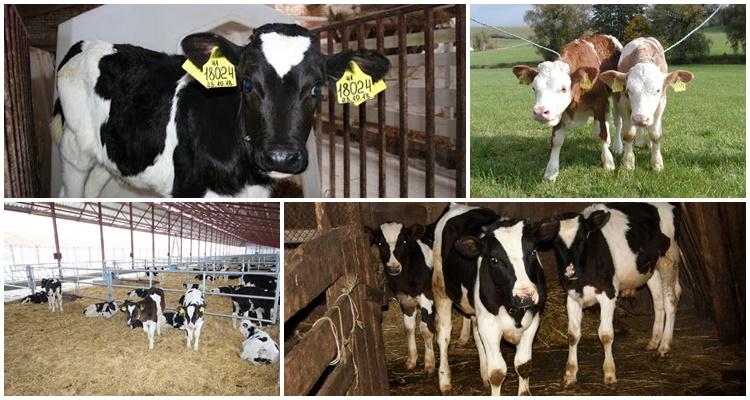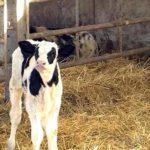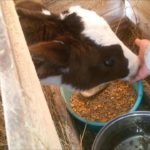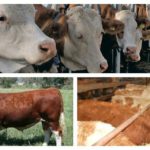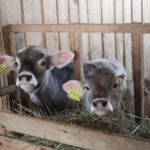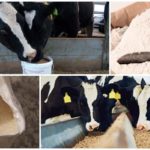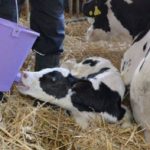Providing proper care for newborn calves is an important stage in forming a herd and increasing the productivity of livestock farming. Several factors contribute to raising healthy young animals: a nutritious diet, proper care, keeping the animals clean and safe. In order to prevent diseases, it is necessary to vaccinate calves in a timely manner.
Birth of a calf
Care for a newborn begins from the first minutes of life. It is important to clear mucus from your baby's nostrils, mouth and ears. After the body is wiped with burlap, the cow is allowed to lick the newborn. The umbilical cord at a distance of 11-13 cm from the peritoneum is cut with disinfected scissors, if it does not break naturally. The umbilical cord section should be treated with iodine or a solution of potassium permanganate. As a rule, the calf gets to its feet on its own 40-50 minutes after birth.
Caring for calves in the first months of life
It is important to keep newborns in dry conditions, changing the bedding regularly. A proper diet is of great importance for the full development of an animal. In the first days of life, a newborn is fed colostrum, rich in vitamins and microelements. Nipple drinkers are used for feeding.
Month-old calves are fed 3-4 times a day, and the animals should be gradually accustomed to feeding from a bucket.
Replace milk in the diet with highly nutritious whole milk substitutes. After 4-4.5 weeks, hay is introduced into the calves’ diet. In the summer, kids learn to pluck grass in the pasture along with the cows.
Taking care of your health
In addition to the correct diet, you need to monitor the well-being of newborn calves. Don't miss the signs of infection. There are several common diseases of young animals.
Dyspepsia
The disease is acute and manifests itself in the form of an intestinal disorder, causing dehydration. Reasons for occurrence: violation of feeding technology, poor maintenance. The disease can occur in calves in the first week of life. It is not necessary to isolate the animal, you need to regularly change the bedding, you can heat it with the help of special lamps.
Constipation
Lack of bowel movements during the day and a bloated stomach are characteristic signs of constipation. Animals lose their appetite and are depressed or nervous. A 140-150 ml portion of vegetable oils or castor oil will help cleanse the stomach and intestines. You just need to make sure that after drinking the oil the animal does not lie down.
“Sintomycin”, “Phtalazol”, “Levomycetin” are used as medicinal treatment. Medicines are given before feeding, three times a day.
Dysplasia
Hip disease is congenital and can be inherited. The cause of the disease is intrauterine pathology of the fetus. Distinct clinical signs in young animals appear in the first year of life. Mild cases are characterized by lameness in the hind legs and weakness of the limbs.
In severe cases, the newborn has difficulty standing up, and during movement there is increasing lameness and a tense or stiff gait. An accurate diagnosis can be made after an X-ray examination.
Peritonitis
As a rule, inflammation of the peritoneum develops against the background of other diseases of the abdominal or pelvic cavities. Common phenomena are postoperative peritonitis, secondary peritonitis (occurs with endometritis, perforation of an ulcer). Limited peritonitis occupies a small area, and the inflammatory exudate can resolve. Acute purulent peritonitis causes deterioration in the calf's health and weight loss. Abdominal bloating, increased heart rate and breathing are observed. If surgical intervention is not performed in time, the animal dies.
Disease Prevention
At home, preventing diseases in young animals comes down to simple rules for caring for animals:
- calves are kept in clean, dry rooms, without drafts;
- for feeding, cleanly washed dishes are used, the colostrum is preheated a little for drinking;
- The room is constantly disinfected.
You also need to pay attention to regular vaccinations. The first time the paratyphoid vaccine is given to a one-week-old newborn.
Walks
Daily walks increase appetite and have a beneficial effect on the development of calves. Young animals older than 2-3 weeks are released every day for a special summer walk (fenced pasture). In winter, calves are allowed outside on fine days for about 5-10 minutes (the duration of their stay in the fresh air is gradually increased).
Raising young animals is a responsible process that requires attention and patience from the livestock breeder. It is necessary not only to choose a suitable feeding ration, but also to monitor the well-being of the calves. If newborns are unwell, it is recommended to seek help from a veterinarian.

